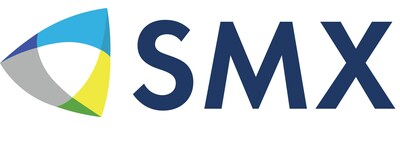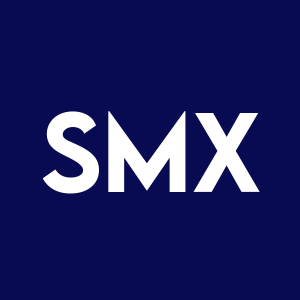Invisible Markers in Tires Ensure Greater Transparency in the Natural Rubber Supply Chain
SMX (NASDAQ: SMX, SMXWW) and Continental have verified a marker substance for natural rubber, enhancing supply chain transparency. This innovative technology allows for geographical tracking of rubber sources, ensuring responsible sourcing. Field tests confirm the marker's resilience throughout tire production, with plans for large-scale use in future rubber products. SMX is collaborating with major tire manufacturers to establish industry standards. The initiative aligns with Continental's sustainability goals, aiming for 100% responsibly sourced materials by 2050. The technology also shows potential for integration with blockchain for further supply chain verification.
- Successful verification of marker technology for natural rubber.
- Field tests confirm the marker's resilience during tire production.
- Plans for large-scale adoption of the marker in future rubber products.
- Collaboration with major tire manufacturers to set industry standards.
- None.
Insights
Analyzing...
SMX provides update on Nasdaq listing
- Marker substance allows geographical origin of raw materials to be verified.
- Field testing successfully completed – marker substance can be verified throughout tire production process, to enable sustainability and circularity.
- In the long term, Continental plans to use the marker substance on a large scale in rubber products.
- SMX have active onboarding processes with other major tire manufacturers to create an industry standard.
"We see huge potential in marker technology. It will help us in the future to ensure that the natural rubber we use in our tires is grown and sourced entirely responsibly," says Claus Petschick, Head of Sustainability at Continental Tires. "Over the long term, we believe that marker technology could help to make the sometimes highly complex processes in our supply chains more transparent and verifiable. With Security Matters, we have by our side an innovative tech platform for the development and trialing of marker technology."
In the successfully completed field test, the marker substance underwent and passed a real test of resilience. The substance was added to responsibly grown latex during harvesting and withstood not only the intensive preparations involved in the production of natural rubber but also the tire manufacturing process itself. In the manufactured tire, the data was retrieved using special, purpose-built software and a reader and correctly interpreted. The appearance and performance of a bicycle tire containing the invisible marker remained unchanged.
Smallholders taught how to use the marker substance
For the field test, natural rubber grown as part of a joint project run by Continental and the German development aid agency 'Deutsche Gesellschaft für Internationale Zusammenarbeit' (GIZ) in the Indonesian province of
Clear ambition for the future: large-scale use in rubber products
Now that the technology has passed its first test of resilience, Continental is planning to use the new marker technology on a larger scale in the future during the process of sourcing its rubber and also to integrate it in other rubber products. As part of the industrialization of this technology, it is conceivable to link the markers with blockchain technology, which is generally considered tamper-proof. This could provide additional support for tamper-free monitoring of compliance with quality standards and quality criteria along the complex supply chain of natural rubber.
"Together with Continental, SMX will use marker, reader and digital technology to further improve the transparency of the natural rubber supply chain and enable sustainability and circularity." says
About SMX
SMX enables materials to carry a history that can be authenticated through origination, use, recycle, and multiple reuse cycles.
The company's B2B white label platforms power commercial sustainability applications across a variety of industries, including timber, rubber, palm oil, cocoa, steel, gold, luxury goods, leather, plastics, and non-ferrous metals, to transition successfully to a sustainable circular economy, thus reducing their carbon footprint and waste.
SMX offers a robust, innovative, and scalable solution for supply chain authentication, traceability, and transparency to transform businesses for participation in the circular economy. Its technology gives materials in solid, liquid, and gas forms the ability to maintain a virtual memory of origination, processing and supply chain journey, including the ability to authenticate provenance, as well as to track recycling loop counts and the percentage of authenticated and/or recycled materials contained. The data is recorded digitally on blockchain, and a linking molecular chemical marker is embedded in the product itself and can be read with a proprietary reader. The SMX technology has been in active operational use on a national scale by the Israeli Government for more than ten years, is environmentally sustainable and has a proven track record.
The SMX solution is an efficient, cost effective, drop-in solution within an existing supply chain, enabling substantial benefits for manufacturers, consumers, and others in the value chain – and the planet, including providing the necessary data for product recycling and re-use. In addition, the SMX technology addresses the issue of the increase in waste globally by enabling the increase in demand for verified, usable recycled materials by creating a commoditized, tradable certified asset which is the recycled material, which can be traded and sold to other players in the value chain and ecosystem.
Forward-Looking Statements
The information in this press release includes "forward-looking statements" within the meaning of the Private Securities Litigation Reform Act of 1995. Forward-looking statements include, but are not limited to, statements regarding expectations, hopes, beliefs, intentions or strategies regarding the future. In addition, any statements that refer to projections, forecasts or other characterizations of future events or circumstances, including any underlying assumptions, are forward-looking statements. The words "anticipate," "believe," "contemplate," "continue," "could," "estimate," "expect," "forecast," "intends," "may," "will," "might," "plan," "possible," "potential," "predict," "project," "should," "would" and similar expressions may identify forward-looking statements, but the absence of these words does not mean that a statement is not forward-looking. Forward-looking statements in this press release may include, for example: changes in SMX's strategy, future operations, financial position, estimated revenues and losses, projected costs, prospects and plans; SMX's ability to develop and launch new products and services; SMX's ability to successfully and efficiently integrate future expansion plans and opportunities'; SMX's ability to grow its business in a cost-effective manner; SMX's product development timeline and estimated research and development costs; the implementation, market acceptance and success of SMX's business model; developments and projections relating to SMX's competitors and industry; and SMX's approach and goals with respect to technology. These forward-looking statements are based on information available as of the date of this press release, and current expectations, forecasts and assumptions, and involve a number of judgments, risks and uncertainties. Accordingly, forward-looking statements should not be relied upon as representing views as of any subsequent date, and no obligation is undertaken to update forward-looking statements to reflect events or circumstances after the date they were made, whether as a result of new information, future events or otherwise, except as may be required under applicable securities laws. As a result of a number of known and unknown risks and uncertainties, actual results or performance may be materially different from those expressed or implied by these forward-looking statements. Some factors that could cause actual results to differ include: the ability to maintain the listing of the Company's shares on Nasdaq; changes in applicable laws or regulations; the effects of the COVID-19 pandemic on SMX's business; the ability to implement business plans, forecasts, and other expectations after the completion of the business combination, and identify and realize additional opportunities; the risk of downturns and the possibility of rapid change in the highly competitive industry in which SMX operates; the risk that SMX and its current and future collaborators are unable to successfully develop and commercialize SMX's products or services, or experience significant delays in doing so; the risk that the Company may never achieve or sustain profitability; the risk that SMX will need to raise additional capital to execute its business plan, which may not be available on acceptable terms or at all; the risk that SMX experiences difficulties in managing its growth and expanding operations; the risk that third-party suppliers and manufacturers are not able to fully and timely meet their obligations; the risk that SMX is unable to secure or protect its intellectual property; the possibility that SMX may be adversely affected by other economic, business, and/or competitive factors; and other risks and uncertainties described in SMX's filings from time to time with the
Follow us on Twitter @secmattersltd
![]() View original content to download multimedia:https://www.prnewswire.com/news-releases/invisible-markers-in-tires-ensure-greater-transparency-in-the-natural-rubber-supply-chain-301770113.html
View original content to download multimedia:https://www.prnewswire.com/news-releases/invisible-markers-in-tires-ensure-greater-transparency-in-the-natural-rubber-supply-chain-301770113.html
SOURCE SMX








